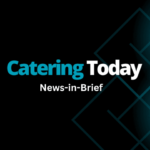Restaurant promotions saw a 25% increase in quick-service restaurants (QSRs) and a 13% rise in casual dining during the first half of the year, according to Meaningful Vision. Promotional activities remain a vital component of successful marketing strategies for UK restaurants.
In the delivery sector, growth was more modest at 3%, as promotional deals are already prevalent. Digital platforms, including websites and apps, have become crucial for promotional efforts. Both fast-food chains and casual dining venues are utilizing these channels extensively, introducing loyalty programs and app-based promotions that reward customers with discounts, which encourages repeat visits. The number of promotions offering free products in exchange for app sign-ups has increased significantly, comprising 4% of all promotions this year.
For many leading UK brands, price promotions are a favored tactic, making up 64% of promotional activity in casual dining and 86% in QSRs. In the delivery segment, casual dining restaurants utilized price promotions 57% of the time, while QSRs featured them 68% of the time. The average discount for promotions in the first half of 2024 was approximately 24% in QSRs and 22% in casual dining.
In the dine-in segment for QSRs, special price offers dominated promotional activity in 2024, accounting for 79%, an increase from the previous year. In contrast, the casual dining sector saw special price offers make up 43% of promotions.
In casual dining, free or additional products accounted for about 36% of all promotions. Notable examples include Frankie & Benny’s offering a free pizza with drink purchases, ASK Italian’s “2 for 1” main meals, and TGI Fridays’ “Kids eat for free” specials.
Discounts, whether percentage-based or absolute, are common in promotions. While absolute discounts are less common in casual dining compared to price promotions or special offers, they dominate in the delivery sector, comprising 45% of eat-in promotions and 53% of delivery promotions.
Chains are increasingly focusing on time-specific promotions, such as breakfast deals from Greggs and McDonald’s, lunch specials from KFC and Domino’s, and evening promotions from Pizza Hut and Greggs.
Major sporting events, such as the Euro 2024 football tournament, greatly influenced consumer behavior and heightened promotional activities. Fast-food chains saw a decrease in in-store visits during games but a rise in delivery orders from fans at home. KFC provided a £10 delivery bundle, while McDonald’s offered event-themed delivery deals. Just Eat, a UEFA sponsor, attracted home viewers with promotions like 25% off food and free delivery during England’s match days.
Many restaurants implemented special deals, themed menus, and promotional offers to tap into the football excitement. Greggs offered free rolls on match days, and Domino’s featured a cashback promotion for free pizza valued at £15. Sales of beverages and finger foods surged as fans celebrated.
Meal deals continue to be a vital part of promotional strategies, with their share rising by 5% in the first half of 2024 compared to the previous year. Pizza remains a favorite, representing over 20% of promotional offers. This year has also seen a rise in promotional activity for savory bakery items and sides.
Maria Vanifatova, CEO of Meaningful Vision, stated, “Promotions are increasingly crucial in attracting and retaining customers. We believe this trend will continue, with promotions becoming more targeted to specific demographics and times. The effectiveness of promotions in driving foot traffic and sales should not be overlooked. By understanding consumer preferences and leveraging digital platforms, businesses can create innovative campaigns that enhance sales, build brand loyalty, and stand out in a competitive market.”





